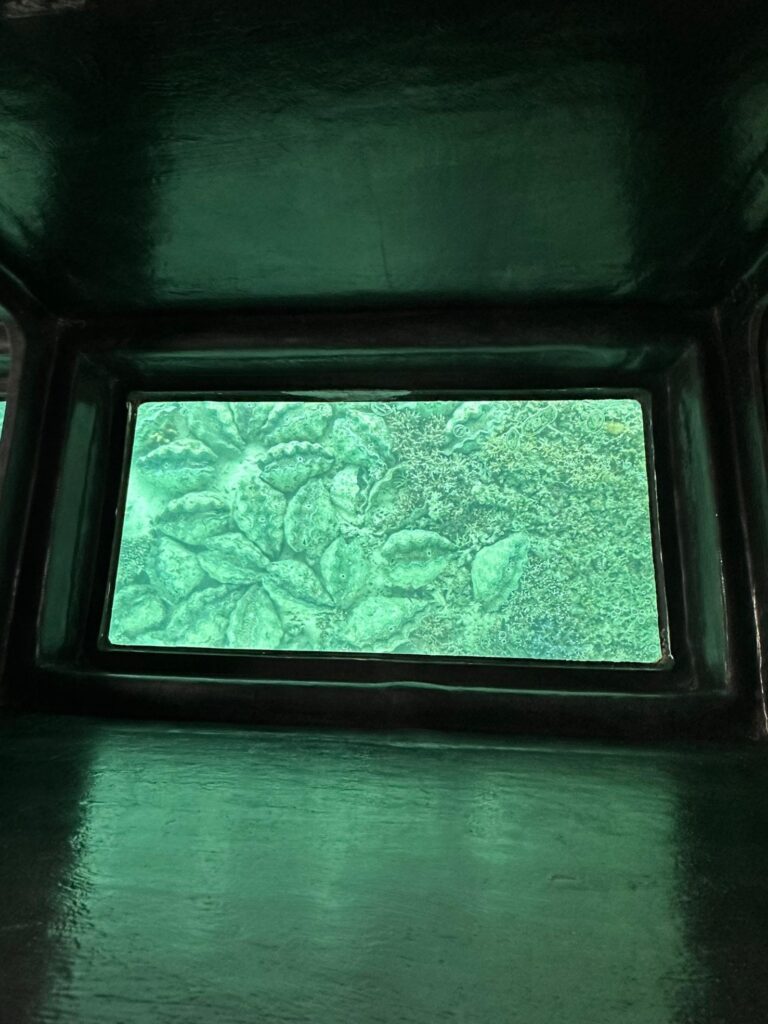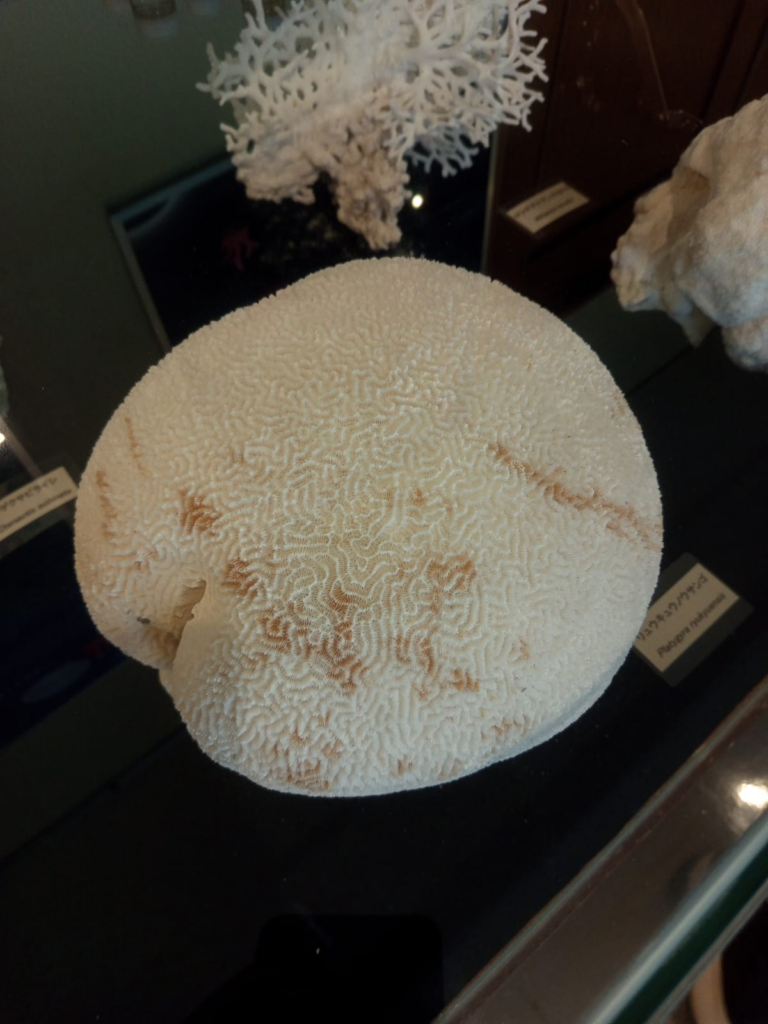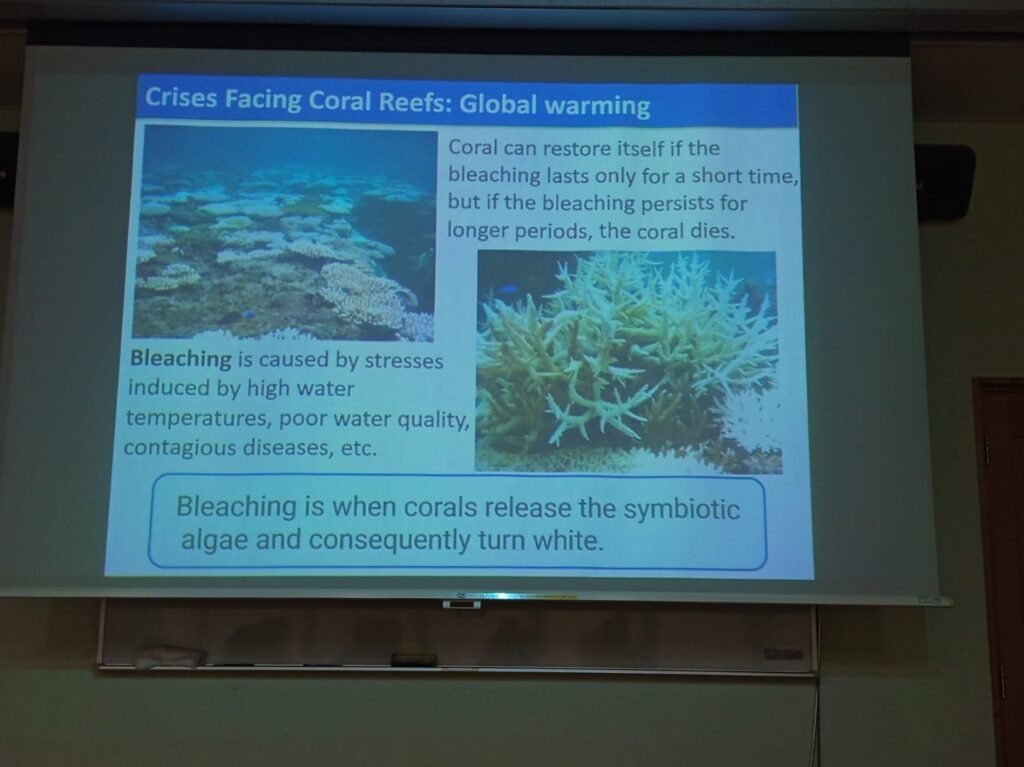Umirzakova Nazym
During our field trip we had a unique opportunity to visit The International Coral Reef Research and Monitoring Center in Ishigaki. The center itself was founded in May, 2000 to conserve the ecosystem of Japan and East Asia as the base station for the Global Coral Reef Monitoring Network (GCRMN) and plays a vital role in the conservation of corals and the marine ecosystem, as well as in the dissemination of knowledge and awareness about marine organisms.
On the third day of our visit to Ishigaki Island, we visited The International Coral Reef Research and Monitoring Center, took a tour and listened to an informative lecture on coral conservation. Before the lecture, our knowledge of corals was limited, and it was a revelation for us to learn that corals are not plants but are classified as marine animals that rely on symbiotic algae and feed using photosynthesis. We also learned about the role of corals and their importance for both the marine ecosystem and humans. Coral reefs act as natural barriers, protecting coastlines from erosion and storm damage, and are also a source of food and shelter from predators for over 25% of marine species, including fish, sea turtles, and invertebrates. In the lecture, we also learned that coral reef bleaching occurs due to rising temperatures and climate change, overfishing, and water pollution, as a result of which 50 percent of Ishigaki corals have suffered from bleaching. To solve this problem, scientists from the center track coral health using satellite imaging, underwater surveys, and genetic analysis. They also conduct Coral transplantation projects to help restore damaged reefs by growing coral fragments in nurseries and replanting them in degraded areas. One of the important types of contributions is conducting research, during which the center presented a list of recommendations for tourists, such as the use of sunscreens that do not contain oxybenzone, which damages coral reproduction and growth.
Thus, summing up all of the above, for us as students of the International Public Policy, it was very fruitful to listen to the lecture on the Ishigaki coral reefs, because being residents of Central Asia, we were not aware of the problems of marine ecosystems, despite the fact that the solution of climate change for the preservation of marine ecosystems requires global collaboration. It was very informative and beneficial for us to study a new topic and expand our horizons, thereby becoming more aware of the local problems of the region.






